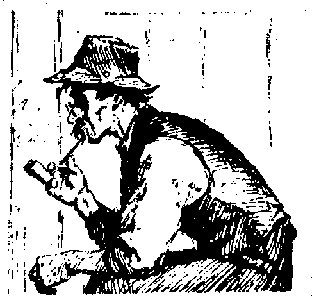
It was one of those late August days of this year beginning with mist in the morning, rain at noon, then at 4 p.m. a heat-and-humidity-storm.
Weather usually experienced in New Guinea during the Second World War – and it was the mention of that war that got the Curmudgeon started in a rant that involved all the folks there standing and new customers as they arrived in the General Store.
Before Curmudgeon’s outburst Storekeep and Mrs. Storekeep were discussing some bills with the Egg Man while Cityfella and Mrs. Cityfella were looking at the new coffee cups – especially the new logo – devoted to a hopeful upturn in sales for the store when a shout was heard:
“Damn! Just how many of you people remember the Second World War? I don’t mean that your memories would be pegged to actually being there in person, but I assume that within the brains here represented, that most, if not all of you remember that there was a war that began in America with a Japanese sneak attack on Pearl Harbor that happened on December the Seventh of 1941?”
There was a general murmur of agreement including the local head of the American Legion who was there buying some donuts for visitors from Detoit.
“So, unless I’m wrong most of your remember some other things that happened in the Twentieth Century even though you were not there in person?”
Again, they agreed.
“Well, my wife’s cousin from their family over in Statesville, is visiting for the coming holiday and while here is reading a book for a class in American Fiction entitled ‘The Wayward Bus,’ by John Steinbeck. This morning at breakfast I picked it up and the pages happened to open at the Notes section at the back of the book. And to prove a point I brought it along.
“There for Chapter 1 I found the following bits of info: That Hollywood was the center of the American Film Industry, that Clark Gable was a popular actor who was voted the King of Hollywood in 1938 – this I did not know – and that the Sinatras, the Van Johnsons, and Sonny Tufts were handsome matinee idols from that time. Before I go on, how many of you were ignorant of those facts?”
Silence after the Egg Man ventured to say that he would take a chance that most of us knew – except perhaps for Gable being the King of Hollywood.
“So,” said Curmudgeon, “I’ll continue with pointing out some items from Chapter Two that include the knowledge Henry Ford was an American automaker and Kit Carson was a Western scout and frontiersman.
“So where are the collective memories of today? When Betty comes down to breakfast in the morning, she is accompanied by her cell-phone and her I-Pad that is fueled by her I-Pod – or is it the other way around – ”
“Neither,” said Cityfella, but before he could say any more, Curmudgeon was hollering out some of the items found in Notes for Chapter Five.
“ – and we swiftly heard more from Betty; they actually tell you who Harry S. Truman was and what happened during the Spanish Civil War, and a great piece of trivia that told me that a Baby Ruth candy bar – introduced in 1920 – was supposedly named for Baby Ruth Cleveland, the infant daughter of President Grover Cleveland and that later baseball star Babe Ruth – remember him? – was prevented from using his own name on a candy bar on the grounds of Copyright infringement.”
“So my wife asked her if she did know most of these items and she said: ‘ – of course not, I wasn’t here at the time.’ So I ask is everybody losing their collective memories of life in these United States?”
Again, there was a general silence except for Storekeep ripping open a small envelope of artificial sugar for the coffee he had just poured.
“Perhaps,” ventured Cityfella, “I note by the logo on the spine, because the publisher is Penguin Books they imagine that many readers might not have the necessary knowledge that we have?”
Curmudgeon cooled a bit, then thought a bit, and finally said: “This book is for sale in college bookstores across America and even at our local Barnes & Noble, so I doubt if it’s a reflection on English brains but more of an assessment of our own collective conscience and intelligence.”
“Is it a book worth reading?” asked Mrs. Storekeep.
“I don’t know,” said Curmudgeon, “I never read it.”
Peter Loewer has written and illustrated more than twenty-five books on natural history over the past thirty years.









